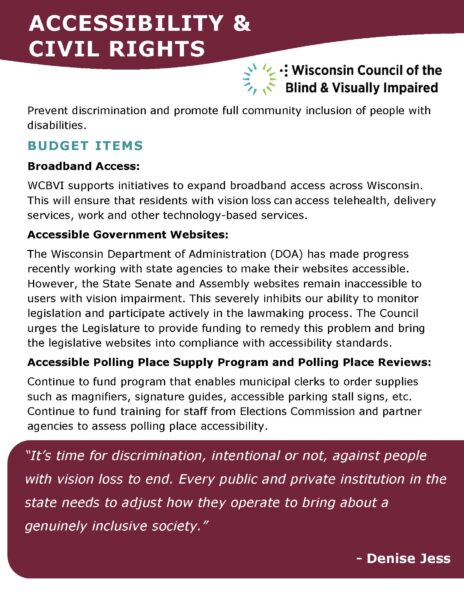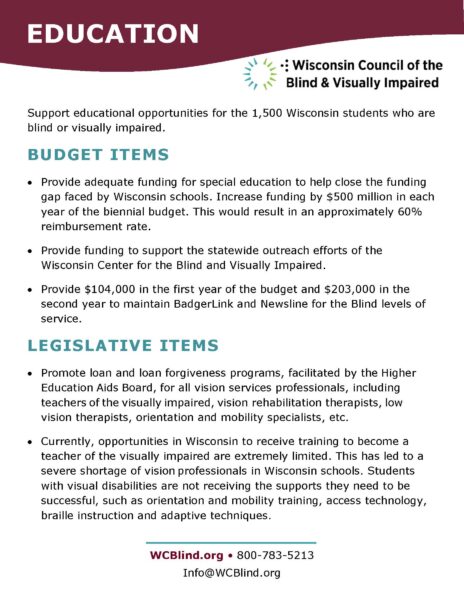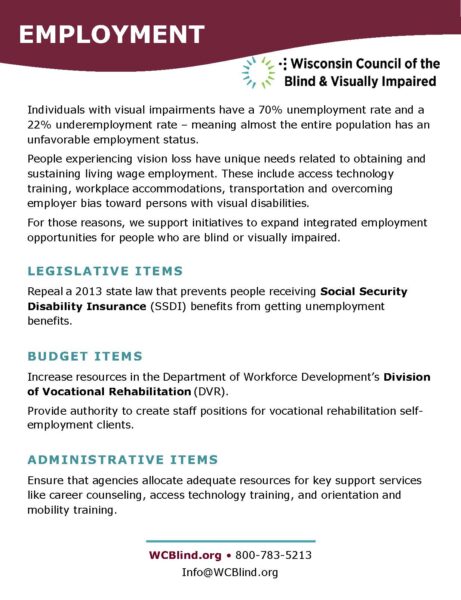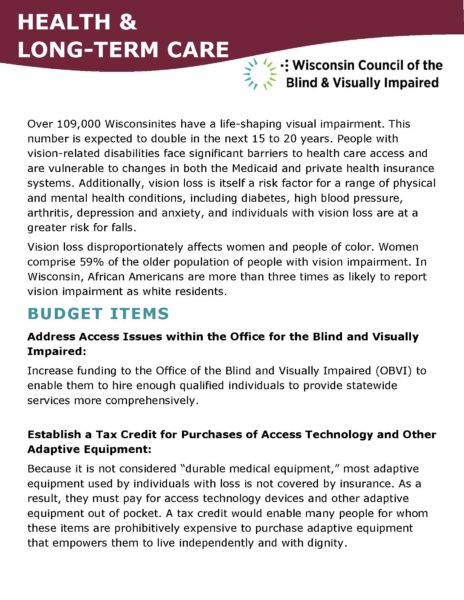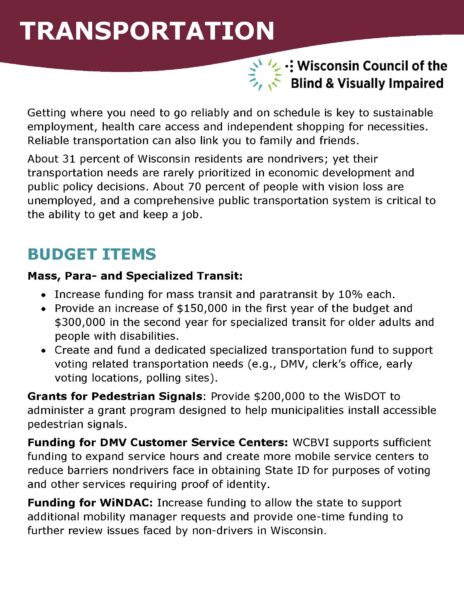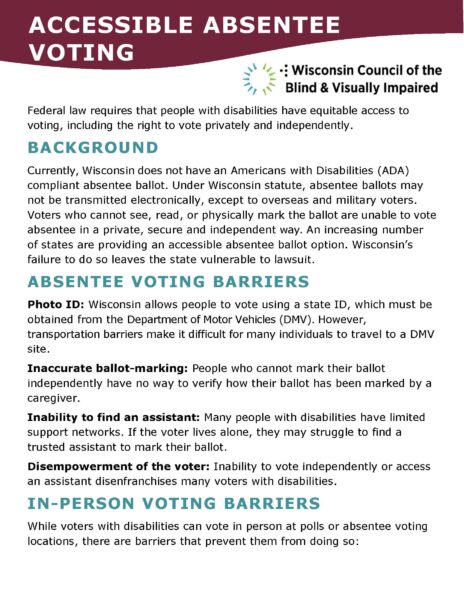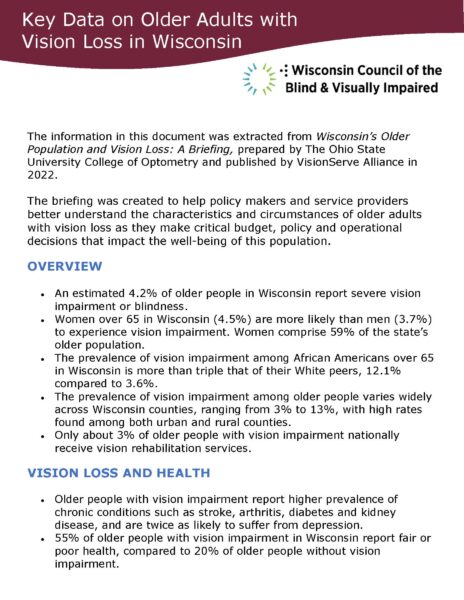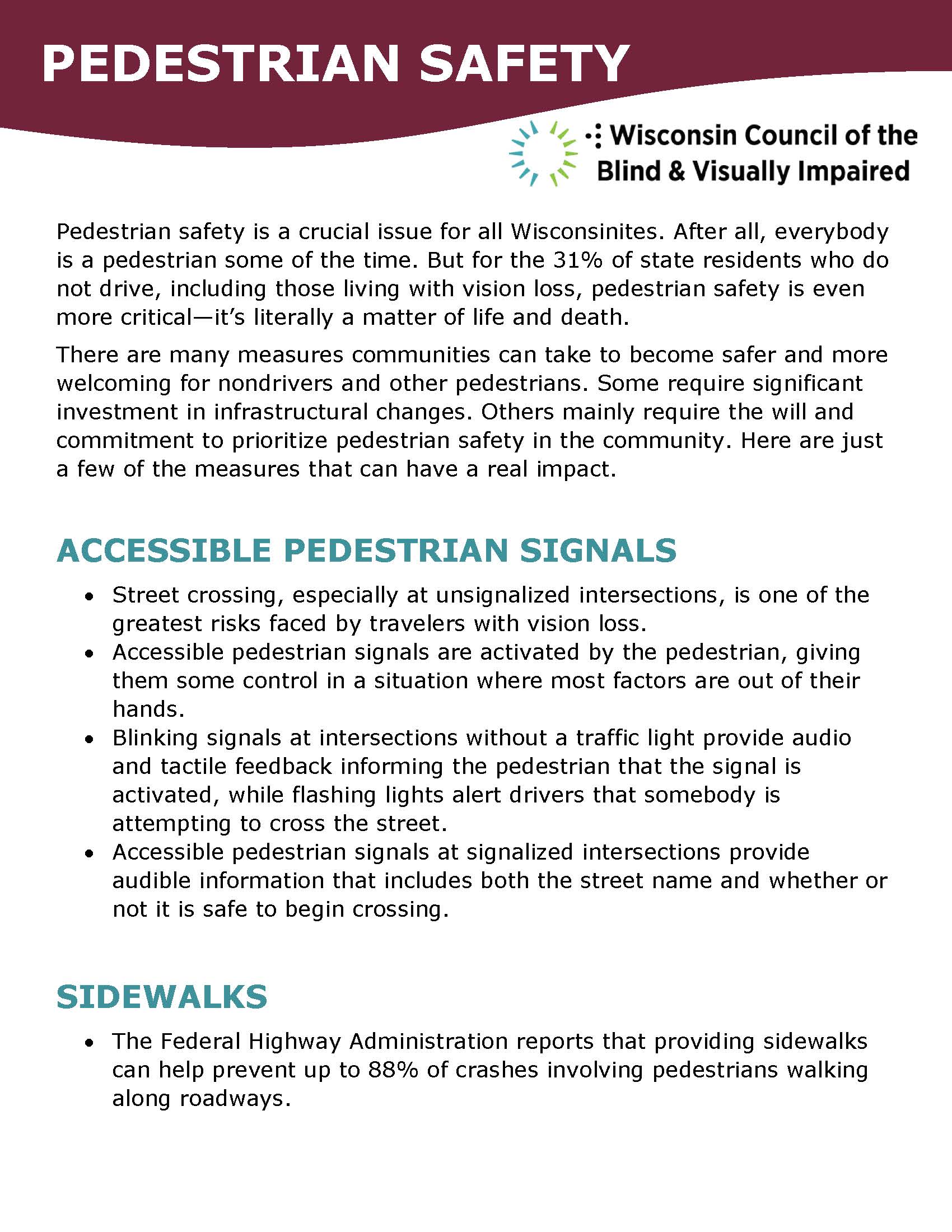Advocacy Day 2024:
May 16, Noon - 1:30 p.m.
Public policy advocacy has been a cornerstone of the Council’s mission since its founding in 1952. But you don’t have to be a professional advocate to be an effective voice for change! There are ordinary folks all over the state doing it successfully, especially at the local level in their own communities.
On Thursday May 16, the Council will present a panel discussion featuring three people from around the state living with vision loss. Each panelist is at a different stage in their advocacy journey, and each has a story to tell about their success as a changemaker.
This panel discussion will provide both the information and the motivation you need to help you move forward in your own advocacy.
Panelists:
- Liz Fryseth of La Crosse has been advocating at the local level for many years on guide dog access, pedestrian safety and emergency preparedness.
- Brent Goodman of Rhinelander is a Council board member who facilitates a vision loss support group and is newer to advocacy.
- Wendi Dwyer of Madison is a long-time advocate though newer to advocating in the blind and low vision community on issues such as pedestrian safety and guide dog access.
Register for Advocacy Day below.
Legislative Priorities
You can view and download our legislative briefing documents covering Civil Rights, Education, Employment, Healthcare, Transportation, and Accessible Absentee Voting. More information on these issues and other policies can be found on our Advocacy page.
Key Data on Older Adults with Vision Loss in Wisconsin
“I am inspired each year to attend the Council’s Advocacy Day because I never wish to pass up the chance to begin to build a relationship with a legislator or member of staff. Additionally, it is important to bring the Council’s legislative priorities forward to key personnel who may not have considered state programs and services from a blind/visually impaired person’s perspective.”
Rhonda Staats
Council Board Secretary, La Crosse, Wisconsin

